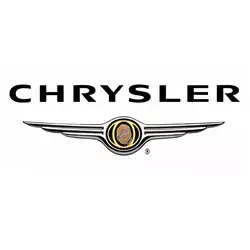Chrysler Town and Country Tire Pressure
Most common recommended tire pressure for Chrysler Town and Country is 36 psi based on year of production, trim and OEM tire size, but it maybe different for older models. It is imperative to confirm the exact tire inflation for your Chrysler Town and Country to ensure safety on the road. Always refer to your vehicle owner's manual for the correct tire pressure designated by vehicle's manufacturer.
Select your Chrysler Town and Country production year to see its recommended tire inflation.
| Model Year | Front Tires | Rear Tires |
|---|---|---|
| 2016 Chrysler Town and Country | 36 psi | 36 psi |
| 2015 Chrysler Town and Country | 36 psi | 36 psi |
| 2014 Chrysler Town and Country | 36 psi | 36 psi |
| 2013 Chrysler Town and Country | 36 psi | 36 psi |
Recommended Tire Pressure for Chrysler Town and Country
Maintaining the recommended tire pressure in a Chrysler Town and Country is crucial for several compelling reasons that directly impact safety, fuel efficiency, and the longevity of the tires themselves. Proper tire inflation ensures that the vehicle has optimal contact with the road, greatly enhancing traction and reducing the likelihood of accidents due to slipping or skidding, especially in adverse weather conditions. This recommended pressure, specific to the vehicle as outlined in the owner's manual or on the tire placard located on the vehicle's door edge, fuel door, or glove box door, ensures the tires wear evenly, prolonging their life and preventing premature replacements which can be costly over time. Furthermore, correct tire pressure is instrumental in improving the vehicle's fuel economy. Under-inflated tires have a larger contact area with the road, increasing rolling resistance and, consequently, fuel consumption. By keeping the tires inflated to the manufacturer's recommended levels, the Chrysler Town and Country can maintain its fuel efficiency, reducing the overall environmental impact and saving the driver money on fuel. Additionally, maintaining optimal tire pressure supports the vehicle's overall performance, including the accuracy of its handling and the smoothness of the ride, thereby ensuring a safer and more enjoyable driving experience.

All listed guides, data and/or calculations are for informational purposes only. TirePressure.com does not warrant or make any representations regarding the accuracy of or the results of the use of this information. Always refer to vehicle owner's manual for the correct tire pressure configuration.